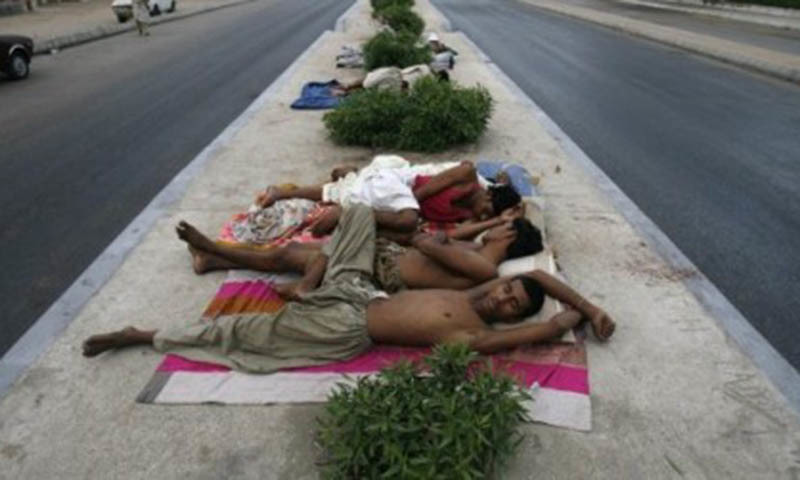ISLAMABAD: Growth in value of the Human Development Index (HDI) for Pakistan has almost stagnated over the last five years, according to a study carried out by a UN agency.
Presenting key conclusions of the Human Development Report 2014 at a ceremony here, Andre Franche, the country director of the United Nations Development Programme (UNDP), said the rising or stagnating income and educational inequality at the global level had contributed to the slow growth in human development.
Know more: Pakistan stays at 146 on HDI
The UNDP also released its 2014 Human Development Index (HDI) values for 187 countries and UN-recognised territories, ranking the countries in terms of economic and human development indicators.
Pakistan’s HDI for 2013 is 0.537 — which is in the low index category — placing the country at the 146th position out of 187 countries and territories.
Other South Asian countries, which are similar to Pakistan in terms of the HDI and to some extent population size, are India and Bangladesh, which have been ranked 135th and 142nd respectively.
According to the UNDP official, over the last 15 years 2.2 billion people (or 15 per cent of the world’s population) are near or living in multi-dimensional poverty despite huge achievements. In Pakistan, he said, 44.2 per cent of the households lived in multi-dimensional poverty.
Geographical locations also contribute to structural vulnerabilities. Three-quarters of the world’s poor live in rural areas. In South Asia, 86.3 per cent of the multi-dimensional poor people live in rural areas; the situation is even worse in border areas.
The report proposes that in order to improve human development, Pakistan needs to invest heavily in employment, engagement and empowerment of youth, given its huge ‘youth bulge’.
Pakistan should provide basic social services and safety nets, empowering people to live the lives they value. Sweden introduced sickness insurance law in 1891, and Norway enacted mandatory compensation law in 1894 at a much lower per capita income stage than where Pakistan currently stands, the report points out.
Given that natural disasters and crises expose and exacerbate structural vulnerabilities, Pakistan should invest in concrete national, provincial and community institutions which prepare and develop early warning systems with strong response capacities.
The report further points out that climate change and environmental degradation are major threats to human development. Steps to reduce these vulnerabilities, including a global agreement on climate change negotiations, will be fundamental to securing and sustaining human development.
Stating that armed conflicts impose enormous costs on individuals, communities and countries, the report says that conflicts can cause large population displacements. By the end of 2012, around 45 million people were forcibly displaced due to conflict or persecution — the highest in 18 years — with 15.4 million of them refugees.
Citing an example, the report says that in India-held Kashmir exposure to violence had caused a reduction in children’s height. The effect was stronger for children born during peaks in violence.
Civil unrest has been fuelled by a growing perception that policymaking has not prioritised people’s needs or listened to their voices, which should be taken as an important call for better governance.
This requires greater accountability and responsiveness of governments to the concerns of their citizens, the report says.
The Head of the UK Department for International Development, Richard Montgomery, told the audience that Pakistan met all the conditions for accountable and responsive government.
Devolution under the 18th Amendment provided the prospects for a more democratic society in which ordinary citizens could fulfil their rights and access better services, and a capable judiciary would promote the rule of law, he said.
Representing the government at the ceremony, Minister for States and Frontier Regions retired Gen Abdul Qadir Baloch said that Pakistan’s social indicators would begin improving once peace returned to the country.
A panel discussion followed the formal launch of the report, during which journalist Zahid Hussain, MNA Bushra Gohar and Ejaz Qureshi discussed the reforms required to establish rule of law and efficient institutions in the Federally Administered Tribal Areas.
Published in Dawn, September 20th , 2014














































